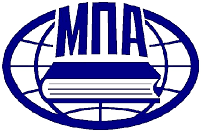
Globethics.net: Let's talk about money. Economics of ethics in higher education
Financial constraints often lie at the basis of unethical practices in the universities and in the education system as a whole. Therefore, in order to transform higher education so that it becomes more ethical, we must understand and influence its economic foundations.
Let's just look at a few countries where I teach and have first-hand experience (thanks to our Intern Marie Andreescu for the numbers she provided in her research report). In Nigeria, for example, the number of universities that have been officially recognized as such has increased exponentially, from 16 in 1980 to 152 in 2017, with the number of students enrolled increasing by 171 per cent between 2000 and 2015. At the same time, the state budget for education has fallen from ten to seven percent under the current government, while the military budget has increased by 17% from 2017 to 2018. No wonder professors are on strike and students are suffering from the inability to complete their studies, as universities are closed. Unsurprisingly, teacher absenteeism is increasing, as they are forced to earn enough money to live in other jobs instead of teaching.
In Russia, the number of students has fallen by 3 million since 2010, and Federal spending on education has fallen by 8.5 percent between 2014 and 2016. After a boom in private universities, the University reform introduced in 2017 reduced the number of universities by 14 percent in order to provide quality education. Russia still has universities that are listed in the world-class ranking.
Great Britain is a country with leading universities. However, the seemingly endless struggle and uncertainty of the "Brexit" process puts the UK's University system in a vulnerable position. To remain internationally competitive, the government forces universities to drastically reduce tuition fees. This leaves the problem of finding ways to make up for the missing revenue? Even world-class universities such as Cambridge and Oxford face ethical challenges; a survey of students on ethics at British universities rated Cambridge in terms of ethics much lower than its high academic rank.
China is growing rapidly in terms of the number and quality of higher education institutions. The number of registered students increased by 480 percent between 2000 and 2015, which means that the country has 36 million more students with higher education, and over the same period, the population growth was only 8%.
At the same time, professors are increasingly restricted in their academic freedom, as party doctrine and its socialist values control the framework of education, which must be strictly observed in academic teaching and research.
The academic rating system should also be developed critically. Currently, insufficient recognition is given to the extremely heterogeneous economic situation of universities in different countries or to ethical ratings. Let's take as an example the Swiss Federal Institute of technology in Zurich, which is just one kilometer from my home, where I am writing this editorial. Why is it among the top six universities in the world University rankings? One of the main reasons is that it pays one of the best salaries and therefore can attract Nobel laureates and invest in the best research technologies. Yale and Stanford universities in the US have recently been subjected to corruption scandals with Hollywood stars who paid bribes to accept their children. As a result, none of these top universities were relegated. Let's add additional ethical criteria and contributions to the UN sustainable development Goals to the University rankings!
The Economics of ethics in higher education can begin with you and me as individuals, with one Department, a campus, and an entire University. It also needs dialogue and advocacy with national University commissions, parliaments and governments on the budget. This is part of our program Globethics.net ethics in higher education institutions. Let's strengthen our cooperation at this level as well. Let's talk about money and ethics.
Christoph Stuckelberger, member of the coordinating Council, Professor of ethics and theology At the University of Basel, Professor at the National research nuclear University "MEPhI", founder and President of the non-Profit Foundation Globalethics.net (Geneva), and Executive Director of the Agape Geneva Foundation, a partner Globalethics.net










